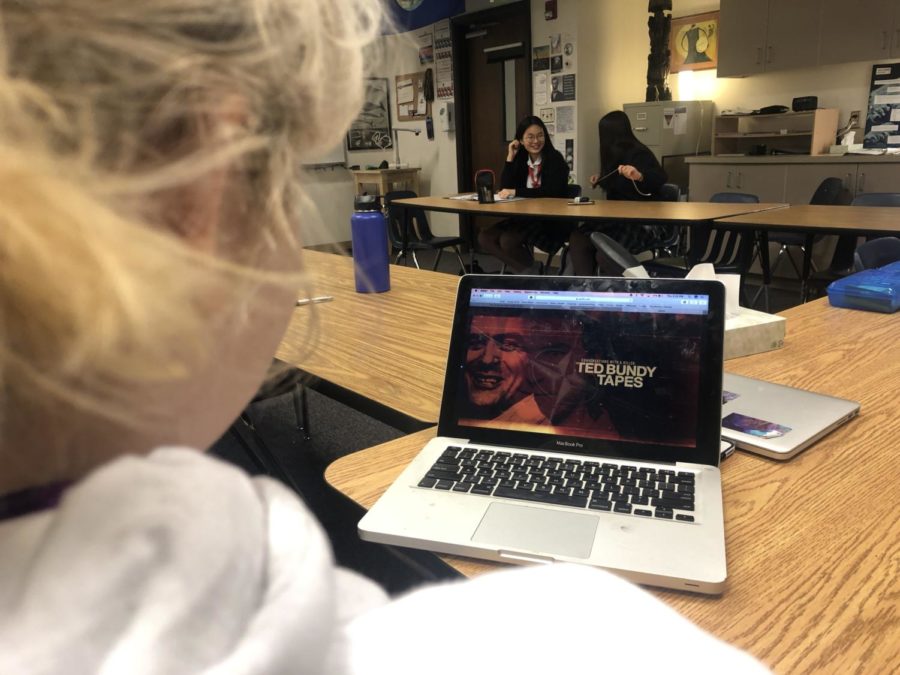Ted Bundy and the romanticization of serial killers
February 19, 2019
Netflix released a four part documentary called Conversations with a Killer: The Ted Bundy Tapes about Ted Bundy’s life and crimes. The series tells the story of Bundy, a notorious serial killer from Tacoma, from his perspective. Bundy, also known as the Lady Killer, confessed to 30 homicides of victims from seven states including Washington.
The series is based off of the book Conversations with a Killer written by two journalists who recorded more than 100 hours of tape with Bundy while he was on death row. The two journalists sought out to find a conclusive story about the crimes, told by Bundy himself. Although most of what he says isn’t true, it’s fascinating to hear his story through his eyes versus people who knew him and the truth. That being said, the casual conversation between the reporters and Bundy is very off-putting. It’s disturbing how nonchalantly Bundy was able to describe his victims and their murders.
The first part of the documentary, called “Handsome Devil,” very slowly develops the timeline of Bundy and his crimes. Although engaging, being that there is a connection to Tacoma, it’s slow and boring at times. The documentary starts off with Bundy’s childhood told from his view and other people that grew up with him. There were mixed reactions about Bundy telling his own story since he’s known for his lying and narcissistic ways, but I enjoyed that aspect the documentary. It’s very psychological and you can really see into the mind of Bundy.
The rest of the series continues to talk about Bundy and his life of crime and nothing else. Overall, there was nothing very surprising or terrifying in the rest of the series, and it fell short in comparison to other Netflix true-crime series.
After seeing the documentary and the reaction to it, many have interpreted the documentary wrong way. Instead of seeing Bundy as a sociopathic killer, he is being romanticized. The whole documentary revolved around his good looks rather than the fact that was a serial killer. Throughout the documentary, it was posed that Bundy was just a normal guy who didn’t fit the serial killer look. But what was does a serial killer look like? There is not a specific look that a serial killer has, but this documentary tried to convince you there was, and that Bundy didn’t look like one. In some ways this attracted viewers to the documentary, not because of the fascination in his crimes but rather the fascination with his looks.
The documentary was highly anticipated, but I don’t think it deserved the buzz. I found other true crime series interesting, but this one was difficult for me to watch. I don’t know if it was the slowness or the glamorization of Bundy, but it didn’t really capture me like a quality documentary should.










